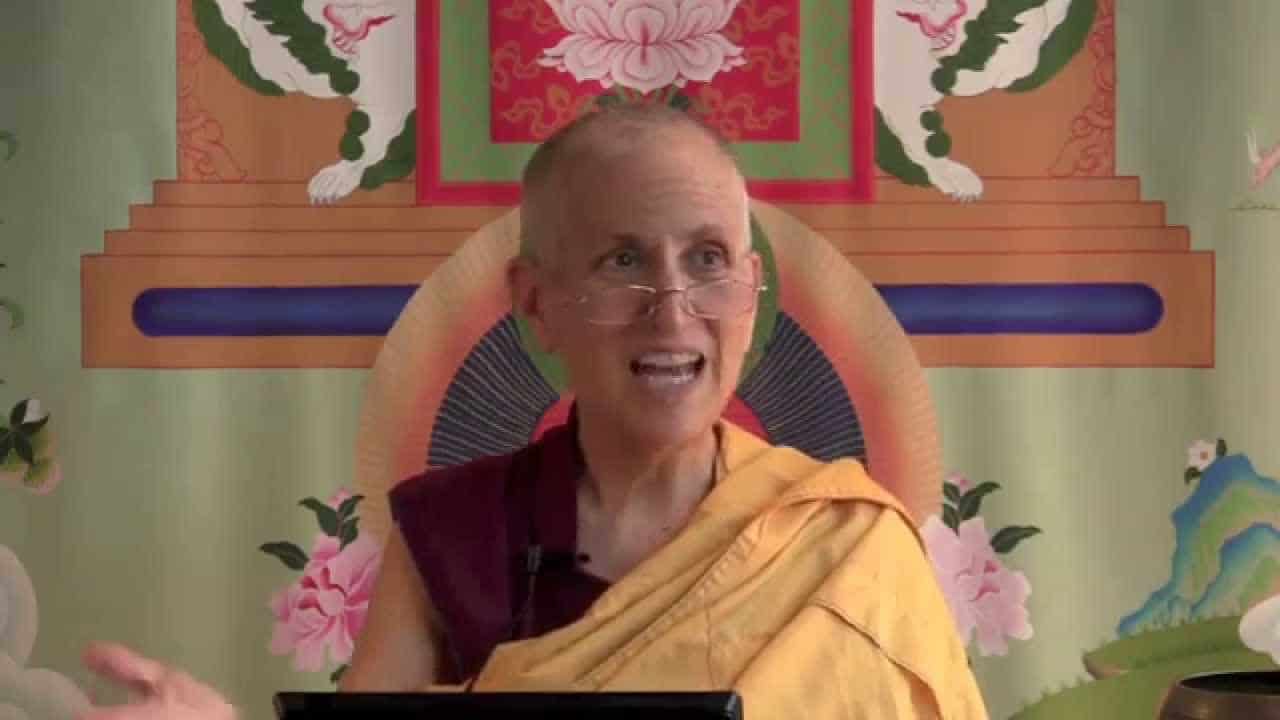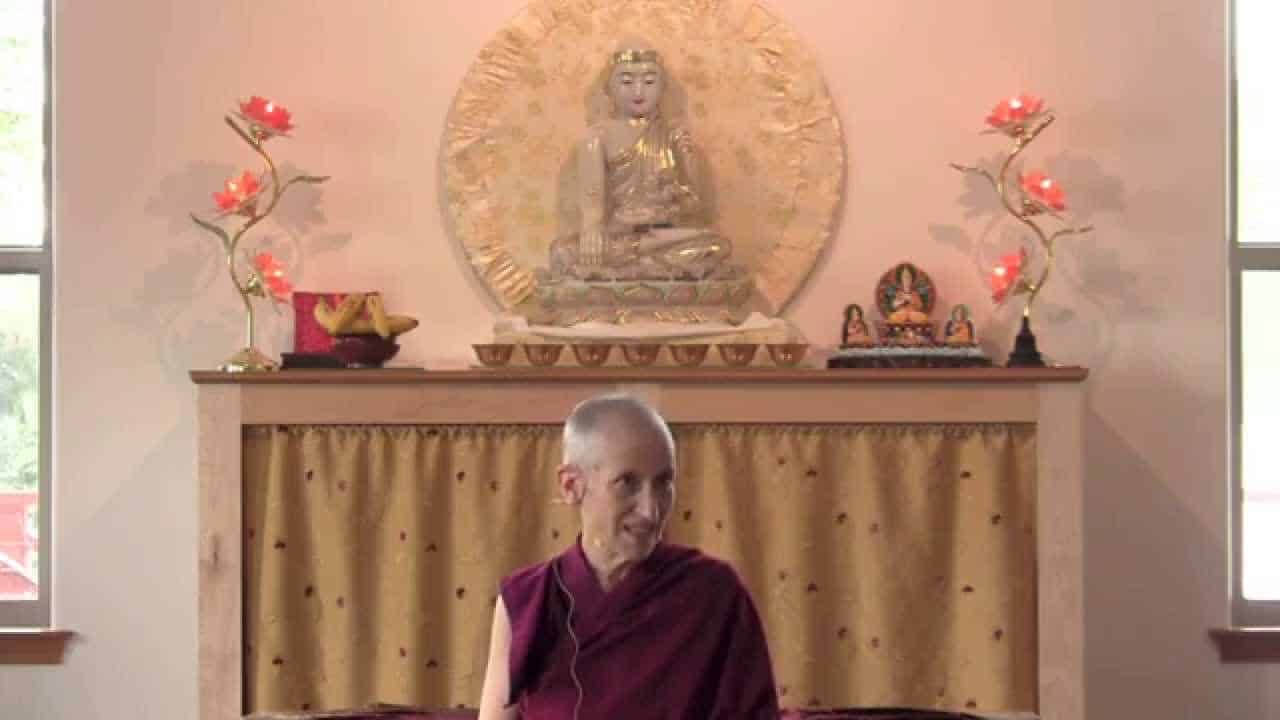Verse 90: The auspicious omen of love
Part of a series of talks on Gems of Wisdom, a poem by the Seventh Dalai Lama.
- Love creates harmony and peace in our minds
- When we have a mind imbued with love, our relationships with others are smoother
- The mood or mental state of one person can have a ripple effect on others
- The importance also of forgiveness
Gems of Wisdom: Verse 90 (download)
“What is an auspicious omen in a country and city dweller alike?” So, rural or city dweller. “Love that seeks harmony among people and that wishes only happiness for others.”
What is an auspicious omen in country and city dweller alike?
Love that seeks harmony amongst people and that wishes only happiness for others.
Why is love an auspicious omen? Because when there’s love then there’s harmony in one’s own mind and peace in one’s own mind. And so that is a good prognosis…. Because “omen” means something that’s going to signal good coming in the future. So when there’s peace and love in our own mind then it’s signaling that there’s going to be…. Our relations with other people are going to be more peaceful and more caring, and that’s a signal, or an indicator, a prediction for our own happiness in this life. And also when we have a loving mind then we don’t create so much negative karma–we create much more positive karma–so it’s a good indicator for a good rebirth. And it’s, of course, something very important for full awakening. You never heard of a buddha who lacks love and compassion. So it’s an auspicious sign for full awakening.
Having a mind imbued with love and kindness is an indicator of only good to come. And this is something that, I think, most religions talk about. And even people who don’t have any religion know this. We can see it from our own experience, can’t we? When our mind is loving then our relationships go better, we’re more peaceful, we get along with others, we create a good feeling amongst the people that we live with, and then as more and more people generate a loving mind it becomes infectious in society, and everybody starts to care about other people. Whereas when it’s the opposite, when our mind is angry, then that’s also an omen, but a bad omen, because when we’re angry we say and do things that make other people upset, and then they react to that, and then we get more angry, and they get angry, and then that kind of ripples out because everybody’s unhappy and upset.
You can really see how the mood or mental state of one individual can have quite a large and broad impact on quite a number of people. So really putting effort into cultivating a mind of love really pays off in ourselves and in others. Cultivating a mind of self-righteous anger [shakes head] uh-uh. That only brings misery, doesn’t it? The kind of anger of: “I’m right! And they have to follow what I say because I’m right.” Yes?
Our country’s full of self-righteous anger. The world’s full of self-righteous anger. And sometimes religious people are the most self-righteous. So we really need to avoid that kind of thing, and instead have a mind of love.
I think, going along with a mind of love, is a mind of forgiveness. A mind that says, “Okay, people made mistakes, or people misunderstood, or even I myself made mistakes.” (You know, that miraculous, unique event that hardly ever happens, of us making a mistake.) To be able to have some forgiveness and love towards ourselves as well, without this constant critical judgmental internal dialogue going on about ourselves, or about other people. But instead to just: “Okay, there was a mistake, there was something damaging, let’s repair it, let’s fix it up.” Especially by doing that by changing our attitude. Sometimes you can’t undo the act that you did, but you can change your attitude and then apologize to the other person and help to change the relationship. But that’s something that we have to come to and act ourselves, seeing that when we can have forgiveness and we can have love, that it bodes well for our own lives and our own future as well as the harmony of those around us, as well as our future life, as well as our eventual awakening.
Venerable Thubten Chodron
Venerable Chodron emphasizes the practical application of Buddha’s teachings in our daily lives and is especially skilled at explaining them in ways easily understood and practiced by Westerners. She is well known for her warm, humorous, and lucid teachings. She was ordained as a Buddhist nun in 1977 by Kyabje Ling Rinpoche in Dharamsala, India, and in 1986 she received bhikshuni (full) ordination in Taiwan. Read her full bio.


